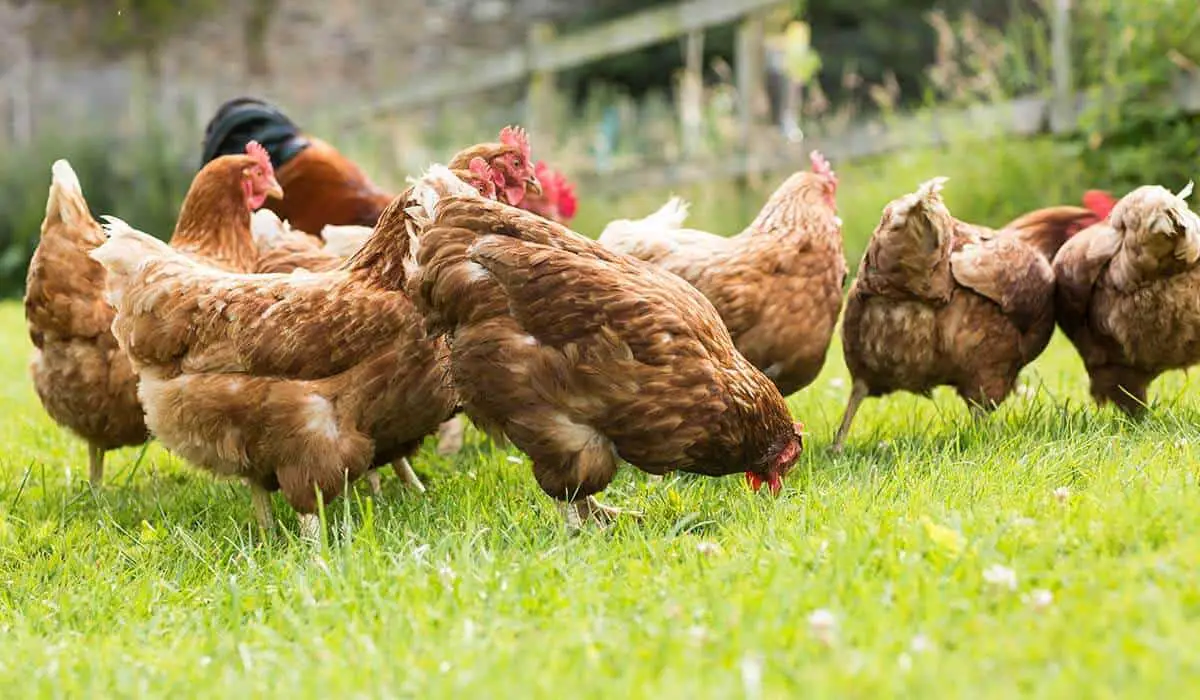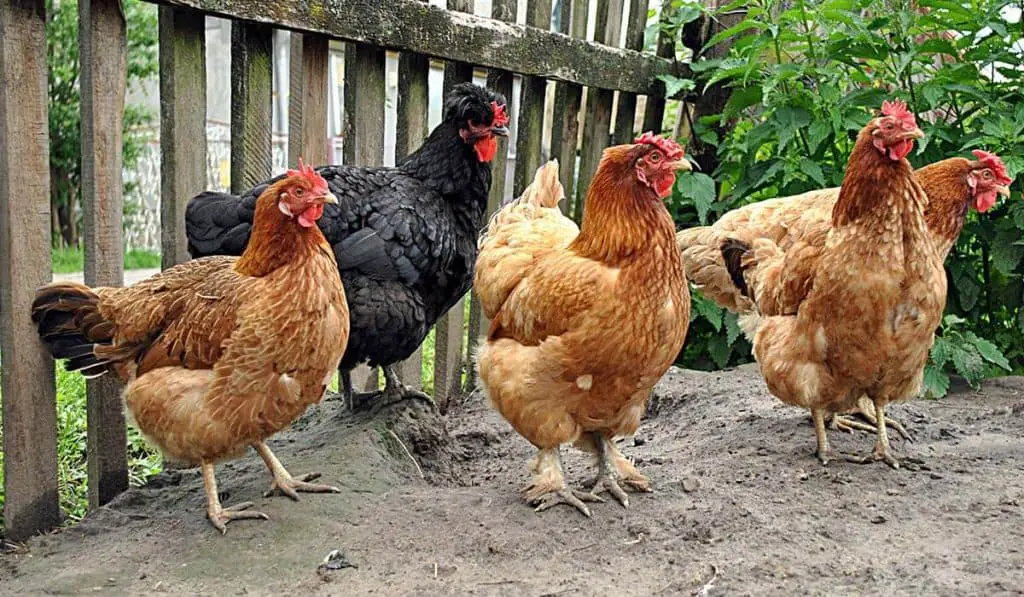Many new chicken owners will ask themselves “can chickens find their way home?” The great news is that most won’t travel very far from the coop, but free-range chickens have a tendency to roam further in search of food and mice.
So can chickens find their way back home? Free-range chickens will have a much easier time than one that spends their days in a coop. However, all chickens have the ability to use the earth’s magnetic field to help them find their way when lost.
That being said, there are many predators such as cats and dogs that can hurt your chickens. Let’s take a closer look at how chickens find their way back home and what you can do to keep them safe.

What Is Magnetoreception?
Magnetoreception is the ability for chickens, migratory, frogs, lobsters and other animals to use the earth’s geomagnetic field as a source of navigational information.
Similar to how humans use a map to find their way from point A to Point B, chickens use the earth’s magnetic field as a navigational map.
While magnetoreception is mostly used by migratory birds, studies have shown that chickens have the ability to utilize it as well.
One study showed that when a red table tennis ball had been imprinted on in the minds of young chickens when they were trained to locate the hidden ball in different locations, that was hidden behind a screen.
When the chick found the tennis ball, they were rewarded with a delicious treat, and then returned back to their hen house. This training continued for 15 different testing experiments. Unfortunately, the study didn’t reveal how far the screens were placed from the hen houses, so I’m not sure how far of a distance they can travel before they become lost?
What they found was that the clear orientation of the chick depended on the direction of the ambient field. Older chicks also had the ability to landmarks as cues to help them overcome problems in orientation.
If Lost, Can Chicks Find Their Way Home?
Based on the study above, the ability to find their way home will depend on the chick’s age, and gender. A young hatchling won’t be able to find their way home as well as a one that is 10 weeks old.
Some studies have shown that chickens are smarter than dogs, which means they shouldn’t have any problems finding their way home.
What Causes A Chicken to Wander Off?
Chickens have a tendency to wander off in search of different foods they need for a well-rounded diet. Free-range chickens have been seen wandering along the side of the road or even a neighbors yard in search of new foods.
Chickens that are kept in a coop tend to say closer to home and will scratch and nibble in the yard or garden, and most will stay within 300 yards of their coop.
That being said, if you live in a sparsely vegetated area with few bugs and worms, you should pay close to your chickens whether they stay in a coop or are allowed to roam freely.
If they do stray from the pack, they will find their way home before nightfall. If you’ve named your chickens and they listen, you may want to grab some food to lure them back to you.
How Do Chickens Find Their Way Home?

Chickens not only have the ability to use the earth’s magnetic field as a navigational sense to help them find their way home.
Depending on their age, they may also find their way back home by using the following:
- Landmarks
- Magnetic field
- Your neighbor (they will likely call you and complain)
- They’ll hear their flock
As long as no predators got them or they didn’t get injured, they’ll likely come home to roost at night.
Make sure all your chickens are back in the coop before locking the gate. You don’t want to accidentally lock the gate and confuse them when they get back home. Once they are in, you should ensure they are safely shut them inside until the morning.
What to Do If You Can’t Find Your Chicken?
Don’t panic, it’s normal for chickens to hide in unusual places. Check all the possible hiding spots nest boxes, under the house, in the corners, tall grass, hay bales, or any other places on your property.
Once you’ve looked everywhere and you can’t find your chicken, it’s time to take some steps to find her. It’s no different than looking for a lost cat or dog.
Inform Your Neighbors
Let your neighbors know that your chicken has wandered off and if they see them in their yard to call you.
Set a Small Trap
If you have a chicken that doesn’t like to be held or caught, consider setting a live trap baited with something they love to eat. Place it in a spot where you know they are likely to take the bait.
Before you know it, the lost chicken will be sitting safely inside the cage so you can put them back with the rest of the flock.
Post It On Facebook
Many people have successfully used Facebook, to find their lost pets after disasters or if they run away. Search for a local pet group on Facebook and let them know your chicken is lost.
Don’t forget to post it on your personal Facebook page as well.
Use Your Dog
If you have a dog that has been raised with the chickens, put them on a small leash. Let them smell a feather and see if they can use their nose to locate the chicken.
This will work better if you have a Bloodhound another type of tracking dog.
Wait It Out
After you’ve done everything, it’s time to sit and wait. As mentioned above, most chickens will be able to find their way home, as long as they are not hurt.
How To Prevent Your Chickens From Getting Lost
Whether you have free range chickens or they live in a chicken coop, you should take some precautionary steps to protect them from running away and getting lost.
- Get a fence
- Cover all access holes
- Lock them up at night
- Supervise them
The best way to keep them from wandering off is to invest in a chicken coop and build a fenced-in area for them to roam around without wandering off.
If you do let them out of their fenced in area, do it late in the evening. We’ve found that this is the perfect time for them to wander in the yard and they go back into the chicken house before nightfall.
This gives them about 2-3 hours of freedom outside of the coop, so they can eat bugs, worms, and other insects from the yard.
Final Word
In summary, chickens will use the magnetic field of the earth for a sense of direction. That being said, chickens have many predators from humans, foxes, dogs, cats, and etc, so you want to ensure they stay in your yard or coop to keep them safe.
Related Articles
- Are Chickens Intelligent?
- How to Keep Chickens From Falling Over The Fence?
- Do Chickens Need A Light In Their Coop At Night?
Sources and Further Reading
Current Biology – Chickens Orient Using A Magnetic Compass
